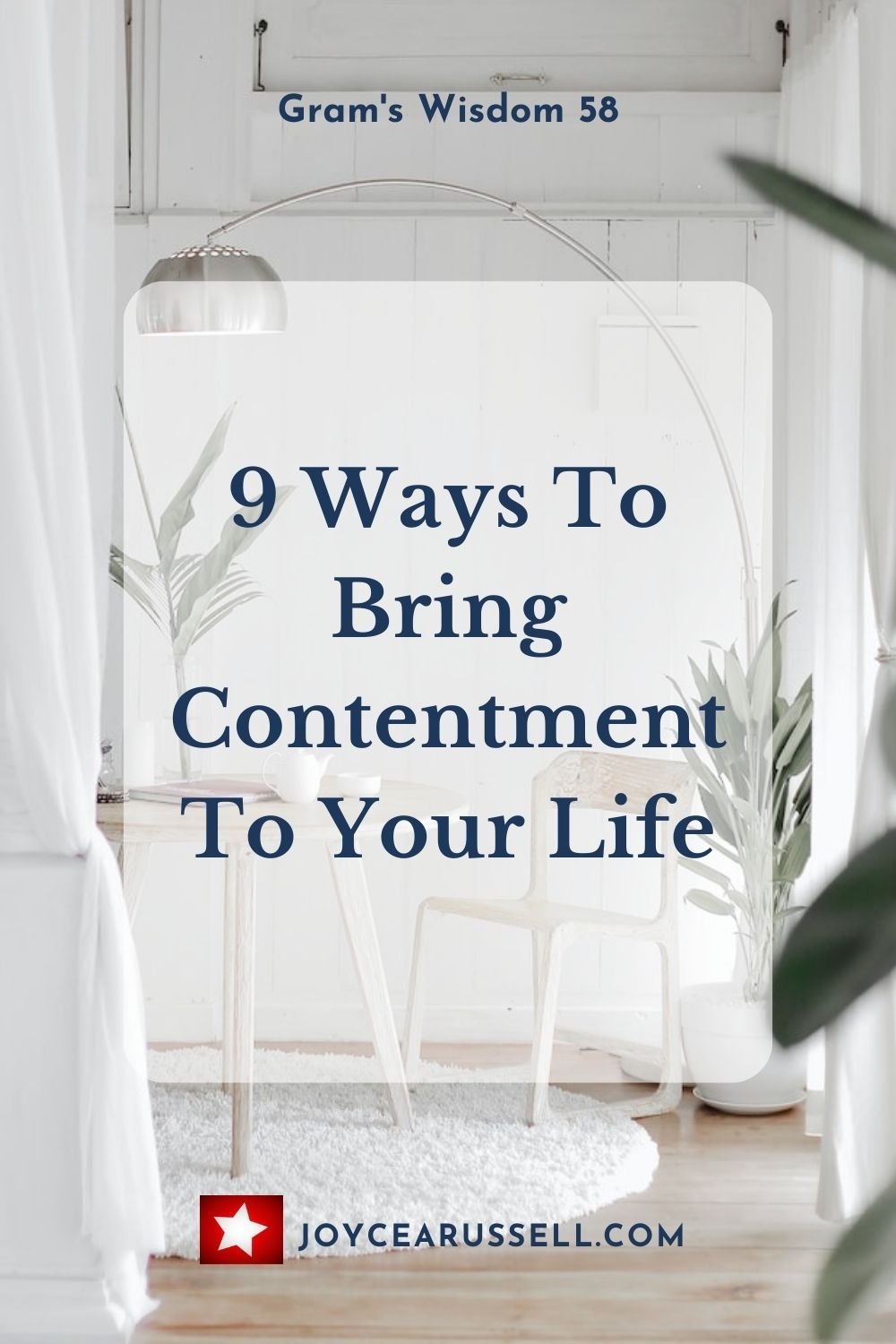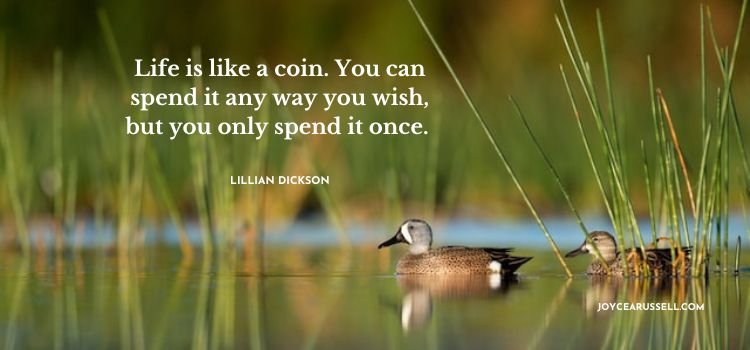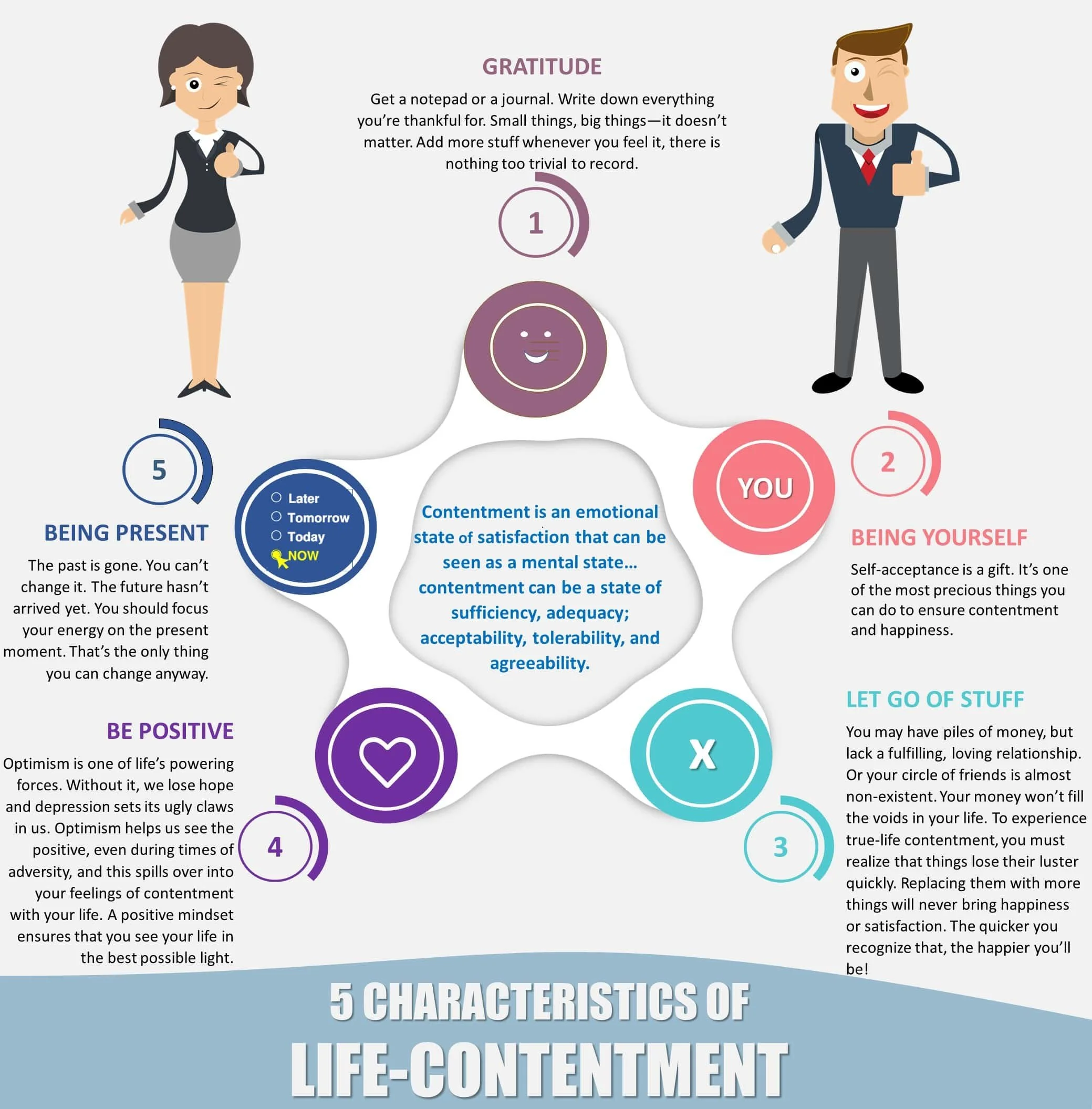Gram’s Wisdom 58
Each day you wake up is another precious gift. These were my Gram’s words. Usually followed by what she was grateful for at that moment. My Gram’s fundamental values were gratitude and kindness. I have always believed that combined they were her contentment superpower.
That my Gram was a contented person I never doubted. She radiated calm and contentment in all her actions. She once told me that contentment is more in the being than in the doing. She had said that without it, you’ll likely find yourself anxious about what you don’t have rather than grateful for all that you do have.
Gram said that, like other things in life, contentment takes practice. You must commit and make the conscious decision of how you want your life to be. While shedding those things that don’t serve you. And she reminded me that it’s up to you to make it as happy or as miserable as you want.
So, how do you feel content in your life? Read on to find out.
The importance of feeling content.
Do you know what happens when you always complain about your life? You attract unhappy, pessimistic cynics.
The opposite is true as well. If you train yourself to see good in every situation, you learn the value of leading a hopeful, happy life.
What does contentment mean?
According to the dictionary, contentment is feeling satisfied because you have all you need. Whereas my Roget’s Thesaurus gives words like a sense of peace, inner calm, and comfort.
It’s that state where you are at ease in body and mind. You have realistic expectations, and you know how to turn negatives into positive, fulfilling experiences.
9 Features of contentment
What are the features of true-life contentment? And how do you achieve that contentment?
That’s what you came here to find out. So, let’s begin.
1 | Practice gratitude.
Regularly take time to acknowledge and appreciate the positive aspects of your life, both big and small. This simple habit can help you focus on what you have rather than what you feel is missing.
Get a notepad or a journal. Write down everything you’re thankful for. Small things, big things—it doesn’t matter. The point is to make a list and be conscious of all the wonderful things happening in your life.
Add more entries whenever you feel like it, even if it’s something small. If you’re grateful for it, then that means it’s important.
Go back and read your gratitude journal once or twice a week. Just re-reading it several times a week will turn your negative thoughts into more positive-oriented ones.
Consistently going over the good things in your life can help reduce the self-sabotaging talk we get in our heads sometimes. It’s also a great chance to remind yourself to be kinder and more empathetic to yourself.
The best time to read this list would be when you’re upset. What better way to put a smile on your face than by looking back on your grateful list?
You can go even deeper if you like. Be thankful that you were able to stand up for yourself with your neighbor. Or how about showing yourself some gratitude because of that promotion you got at work?
Or you can just be grateful because you’ve accomplished so much on your own. Gratitude and self-love go together. So, don’t forget to give yourself a big pat on the back to the amazing person you’ve become. That certainly deserves an entry in your gratitude journal!
2 | Be kind and giving to others.
Volunteering and helping others can provide a sense of purpose and fulfillment, increasing your contentment in the process.
Contented happy people are more empathetic. They understand what others are going through. Their reactions stem from the knowledge that everyone struggles at some point.
They know that everyone wakes up with some kind of problem that they’re dealing with. It could be something personal or work-related.
Whatever it is, it’s worth putting in the effort and helping anyone you can. Even if it’s holding the door for someone or smiling at them as you pass them by.
Another wonderful way to feel contentment is in the service of others. This could be by sharing your time, energy, or money.
Why not volunteer at a local shelter or hospital? You can also donate money to your favorite charity.
Helping others helps you feel more sympathetic and supportive. Moreover, you’ll be happier and more appreciative of everything you have.
3 | Cultivate positive relationships.
Surround yourself with people who uplift and support you. Meaningful connections and strong social bonds contribute significantly to overall contentment.
Contented people are appreciative of what they have in their lives. They know the value of a good relationship with someone. Be it a coworker, a friend, a family member, or a partner.
Contented persons are knowledgeable about what’s truly important to them, they work hard to make their various relationships meaningful and special. Part of that care is in ensuring that their relationships remain healthy.
Someone content with their life understands that the relationships they form with others are a precious resource. Because of that, they treat the people they have in their lives well because they value their relationships deeply.
Contented people work to build stronger, happier, and healthier relationships with others. Being content will invite this type of strong relationship building into your life.
4 | Embrace mindfulness.
Be present in the moment and fully engage with your experiences. Mindfulness can help reduce stress and increase your enjoyment of everyday activities.
Mindfulness is simply being present in the moment. It’s a very basic, adaptable form of meditation that teaches the importance of just ‘being.’
In other words, it’s about enjoying everything that the present brings. Even simple things like the trees swaying in the wind or the light moving across your windows at different times of the day.
Try practicing mindfulness three days a week. Begin with just five minutes at a time, then add more time when you’re ready.
Studies show that practicing mindfulness regularly helps reduce stress and promote inner peace. Plus, it fills you with a heartfelt sense of appreciation and contentment.
The past is already done and dusted. You can’t change what happened for good or bad.
Likewise, the future hasn’t come yet. What’s the point of fretting over something that’s not in your power to change or modify?
5 | Simplify your life.
Reducing clutter and complexity in your daily routines and possessions can lead to a simpler, more peaceful life, promoting contentment.
A key difference between living a life of contentment and being unhappy is letting go of the need for more stuff. You may have piles and piles of money but lack a fulfilling, loving relationship. Or your circle of friends is almost non-existent. Your money won’t fill that void in your life.
To experience true-life contentment, you must realize that things lose their luster after a while. Buying more things will never equate to happiness or satisfaction. The quicker you recognize that, the happier you’ll be!
When you’re content, you have a good sense of distinction between what you truly need versus what you merely want. This is an important skill to have. People who don’t get caught up in frivolous wants can focus on more important parts of their lives.
A contented person isn’t quick to swipe their debit and credit cards on a purchase. Rather than allowing themselves to feel pressured into impulse buys, they carefully consider how they want to spend their money.
People who are content with their lives don’t feel the urge to splurge on frivolous purchases – doing so doesn’t bring them satisfaction or joy because they already have ample amounts of it.
6 | Take care of your health.
A healthy body and mind are essential for contentment. Regular exercise, a balanced diet, and adequate rest contribute to your overall well-being.
One of the most important things you can do to feel content is to take care of yourself. This means mind, body, and spirit.
Many of us focus more on planning for the future. We put in a lot of energy, time, and money on something that hasn’t even happened yet.
The trick is to begin today. Everything else will fall into place if you take actionable steps right now!
Here are some great ideas to help get you started:
Begin a daily self-care routine.
Practice yoga and meditation to boost cognitive functions and bring inner balance.
Adopt a positive mindset and push away negative self-talk that undermines your self-esteem.
Exercise 3 to 5 times a week.
Eat a well-balanced, nutritious diet.
Pick up an old hobby or learn something new to keep your mind active.
7 | Learn to manage stress.
Develop effective stress management techniques, such as meditation, deep breathing, or hobbies, to maintain your emotional balance.
Feeling content allows anxiety and stress to leave your life. When you aren’t content with what you already have and how your life is going, you likely spend a lot of time focusing on what you think you can do to improve it.
Instead of constantly chasing the next great thing or doing something special to keep up with others. You’ll notice that doing so no longer feels necessary when you’re content with what you have.
Because your mind is no longer centrally focused on keeping up, getting new things, or looking impressive. You’ll feel that unnecessary anxiety and stress melt away in favor of true contentment.
8 | Live in alignment with your values.
Align your life choices with your core values and principles. When your actions and beliefs are in harmony, you'll find greater satisfaction and contentment in your daily life.
Contented people understand themselves quite well. Remember, we’re all on a journey of discovering who we are. Building faith and trust in your self-worth and value takes time.
Self-acceptance is a gift. It’s one of the most precious things you can do to ensure contentment and happiness. It’s also one of the hardest things you’ll have to do. And you’ll have to do it on your own.
Once you begin accepting yourself, everyone else will as well. No one will accept you if you’re having a hard time doing it.
Contented people know what they like and how they like it. When they make changes to their lives, they do it out of genuine awareness. Instead of a passing notion that they need to change to “keep up”.
When you’re feeling content, you’re satisfied with everything you already have. You won’t feel pressured to go out and buy the “latest and greatest” anything or live beyond your means.
Similarly, when you see your friends and acquaintances succeeding and doing well in life, you won’t feel jealous over what they have. You may feel happy for them, but ultimately, you allow your contentment to be enough for yourself.
Because content people are happy with what they have, they spend more of their energy making themselves better. They understand the importance of learning and growing as humans. They constantly strive to be the best versions of themselves.
9 | Being optimistic.
Being optimistic isn’t simply seeing the world through rose-colored glasses. It runs much deeper than that. Optimism is one of life’s powering forces. Without it, you lose hope and depression drags you down.
Optimism helps you see the positive. Even when challenges may adversely spill over into your feelings of contentment. A positive mindset ensures that you see your life in the best possible light.
Having a positive mindset also affects not just your emotional state. It also benefits your physical and cognitive health. Studies show that optimistic people don't suffer illnesses as often as other people. They have better heart health and a stronger immune system. Plus, staying positive keeps your memory skills sharp and improves your ability to focus.
Contented people are generally satisfied and happy people. They don’t allow trivialities to concern them because they know they possess everything they need and have plenty to be grateful for. Instead of constantly worrying, they allow themselves to remain positive. It’s more difficult to upset someone who is normally happy and content with their lives.
My final thoughts are.
Contentment is rather permanent. It doesn’t come and go with the vagaries of your day. It’s a lifestyle and a way of looking at the world, as well as a feeling.
For more information, check out these posts.
Contentment: What It Is And Why It Matters.
Contentment A Positive Mindset Choice.
Thank you for taking the time to read this post.


















